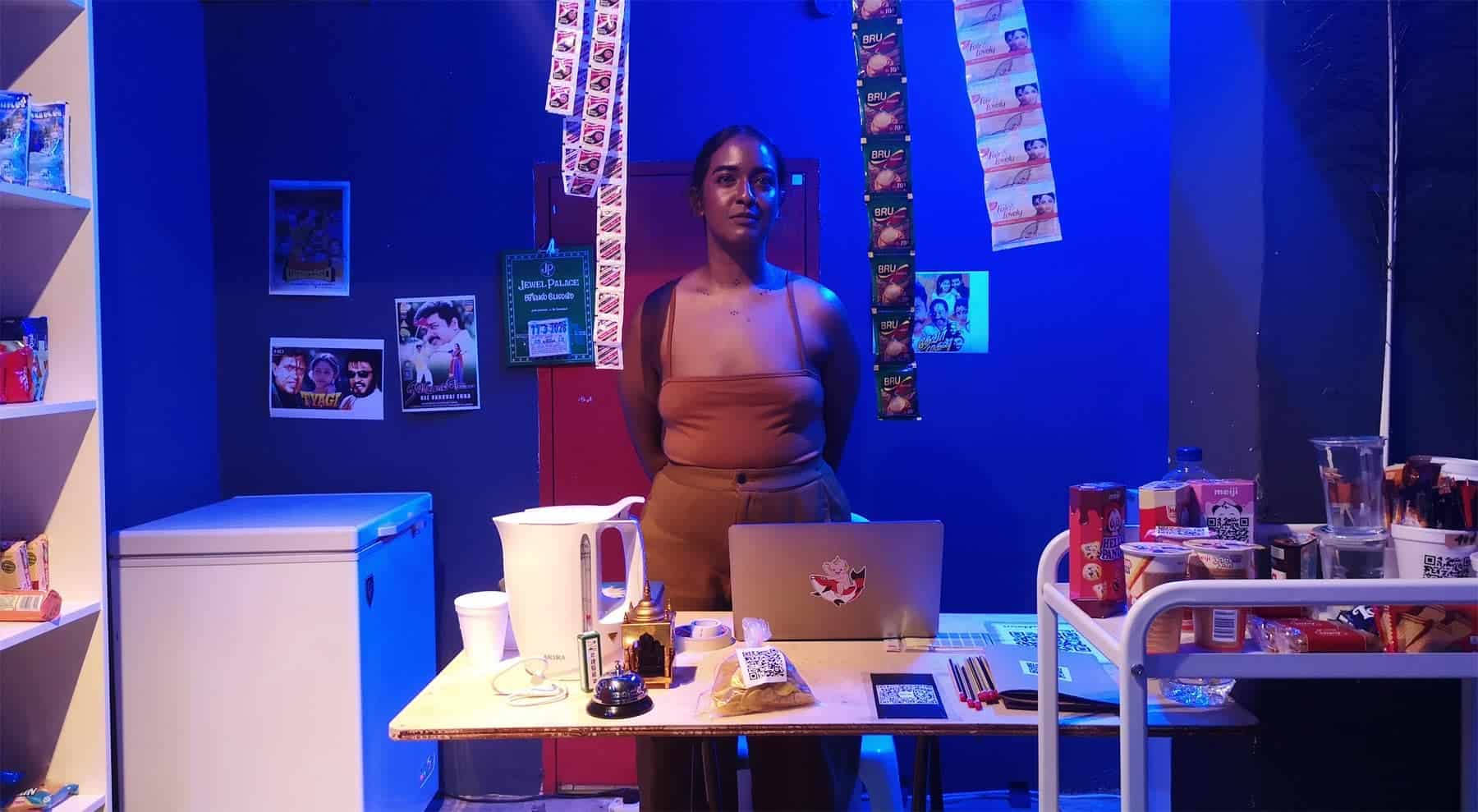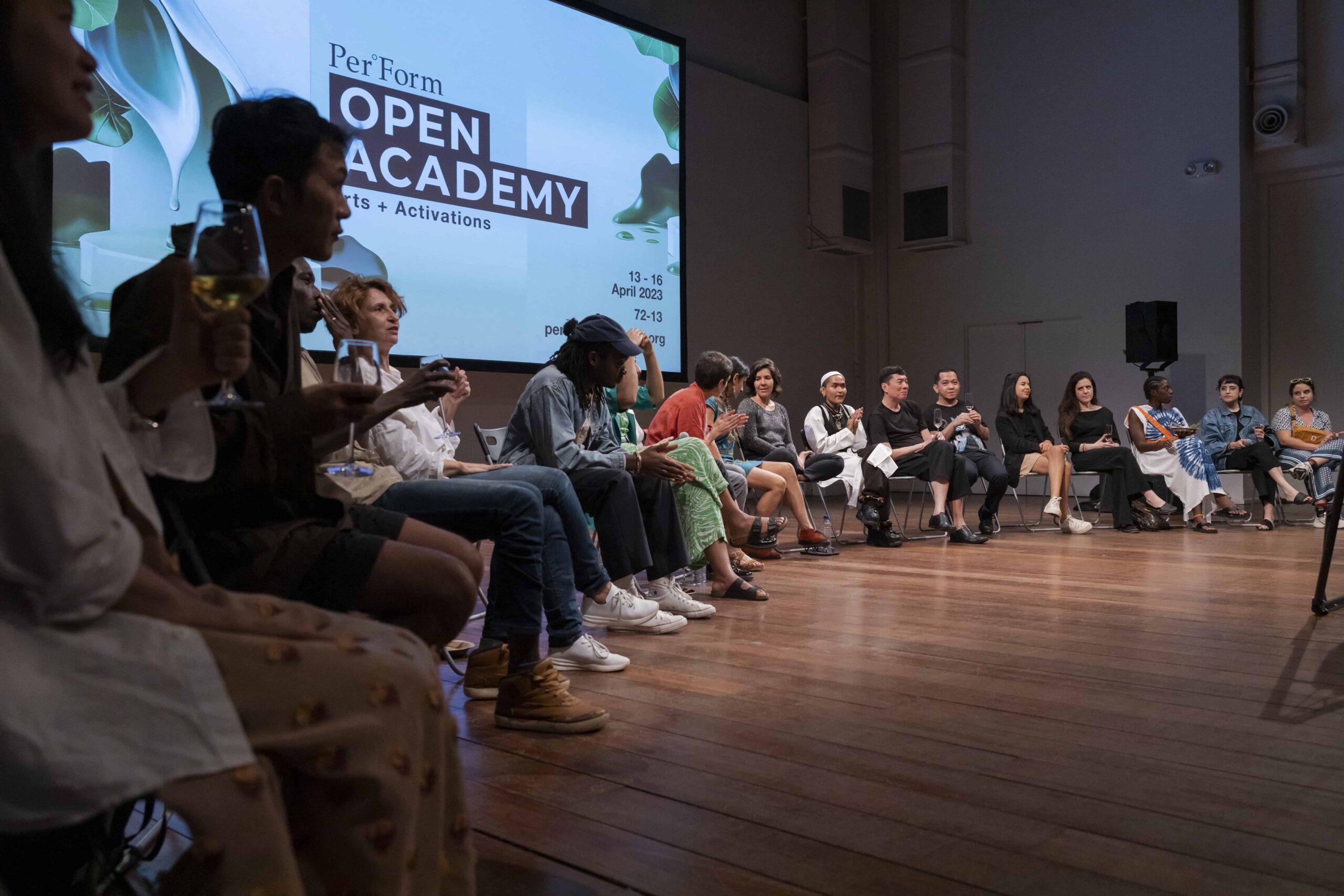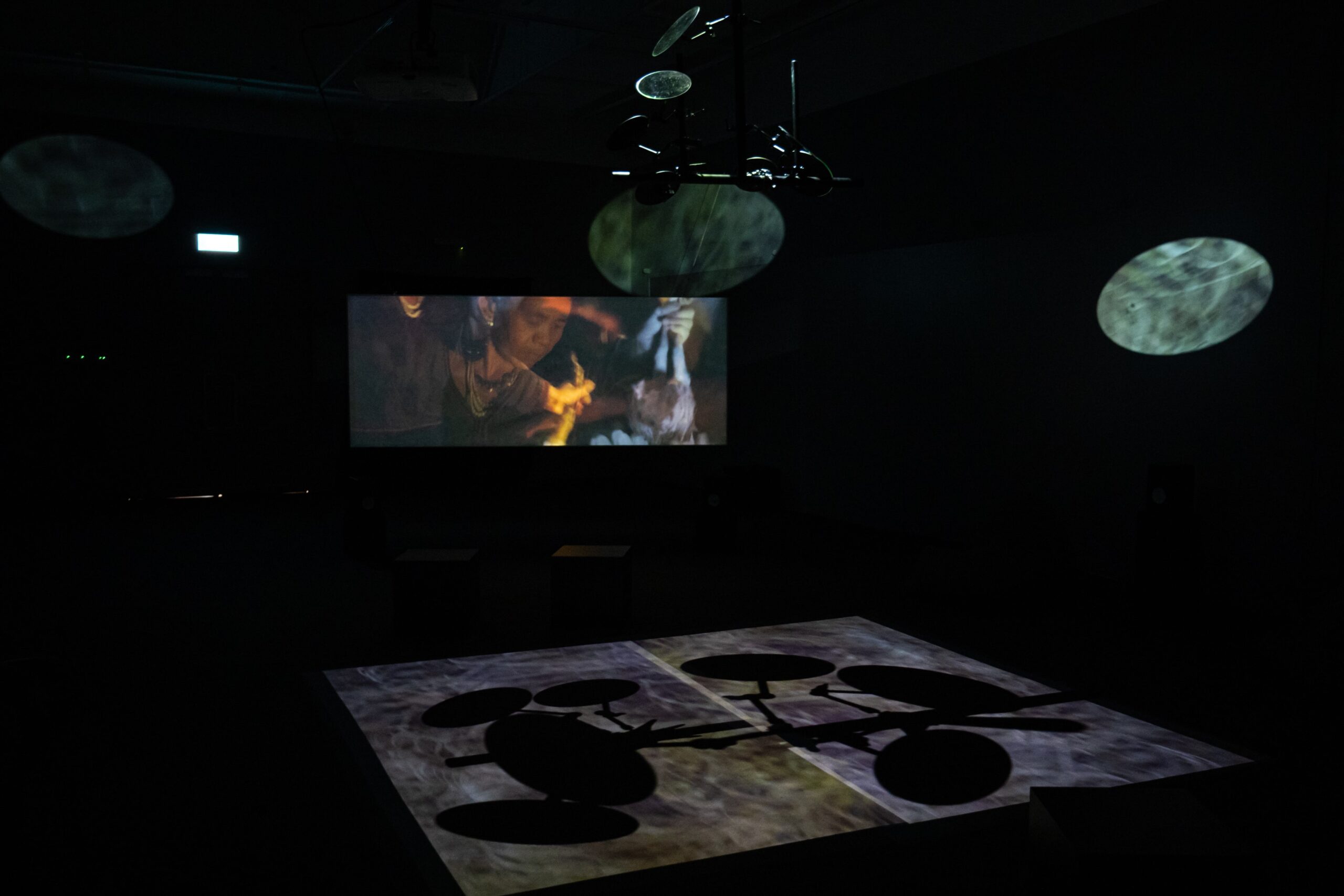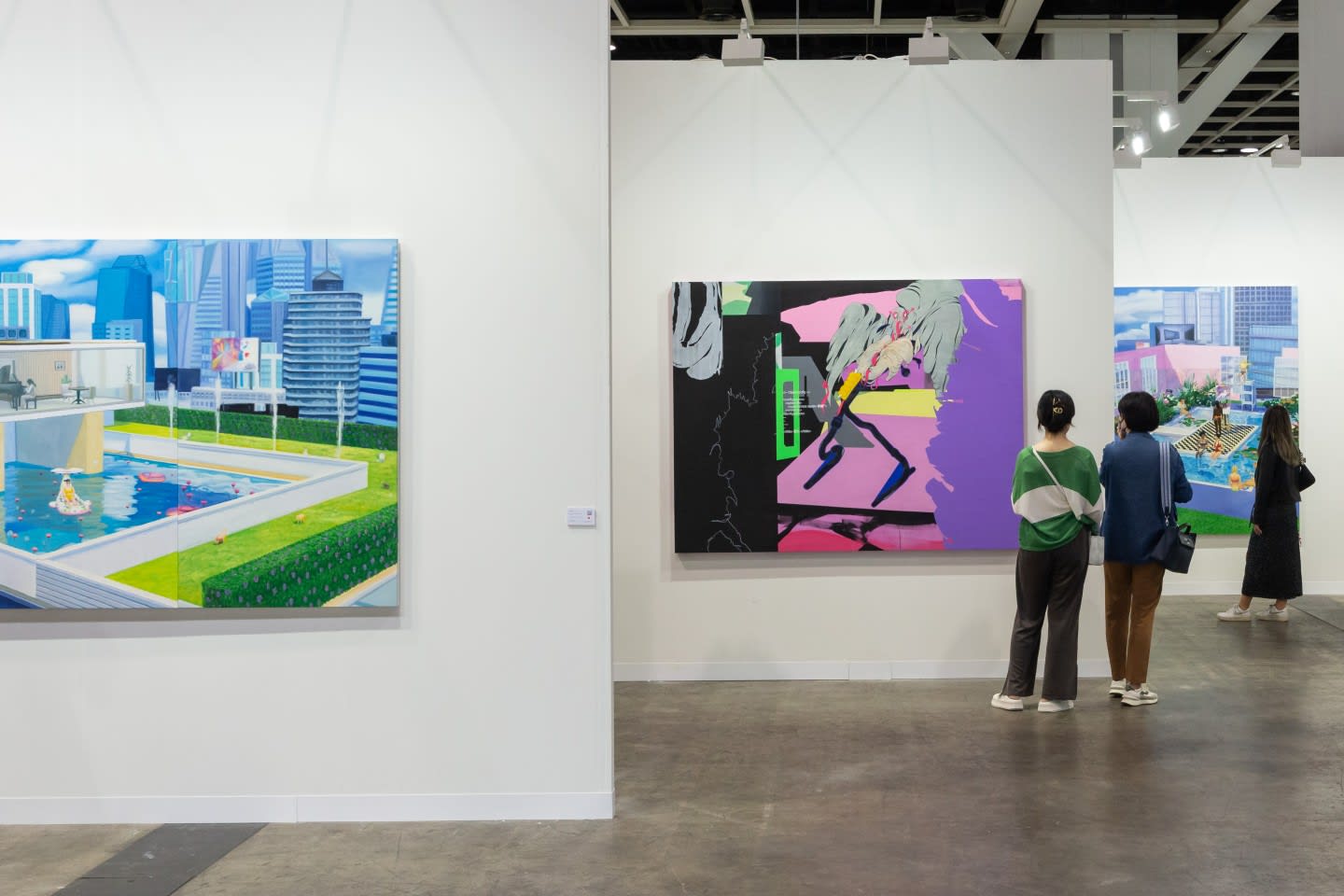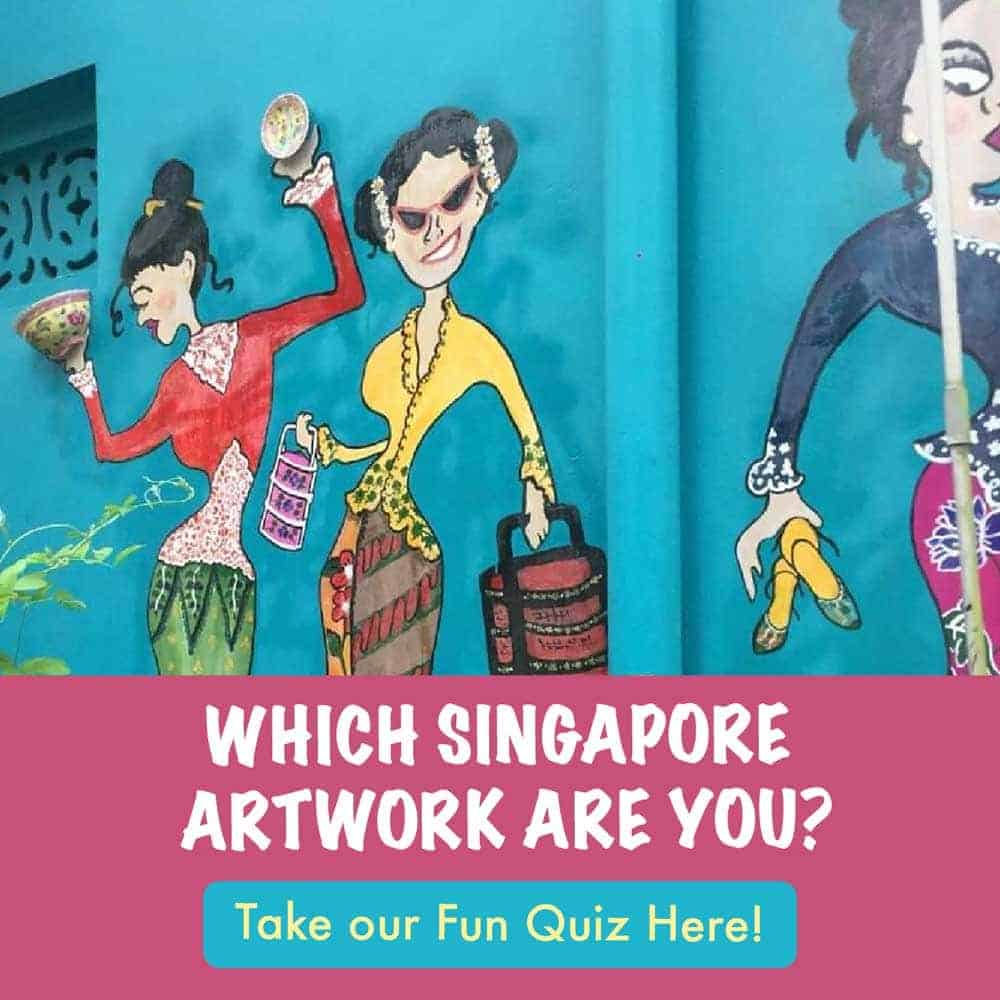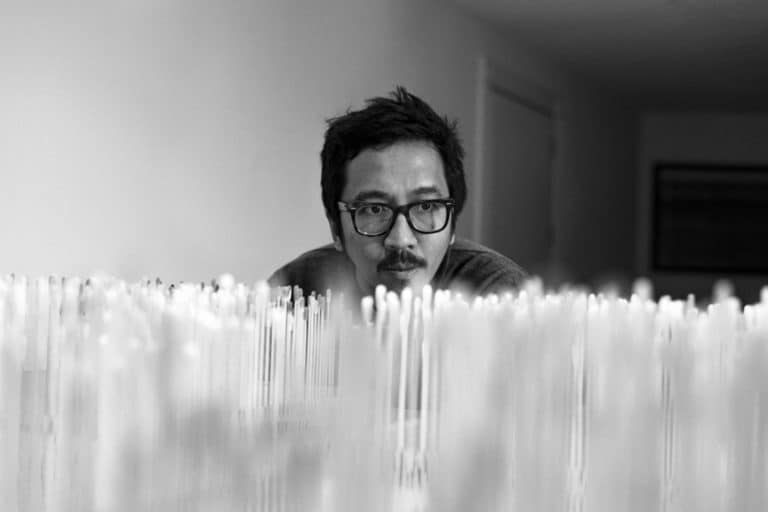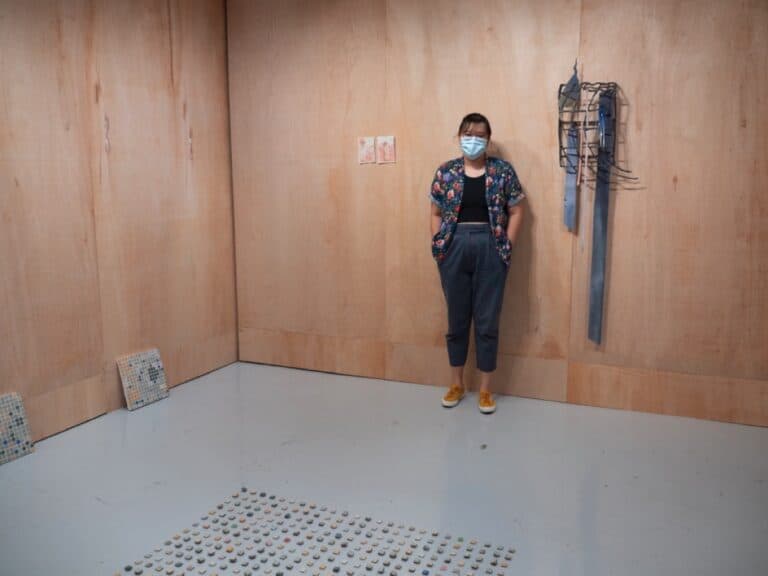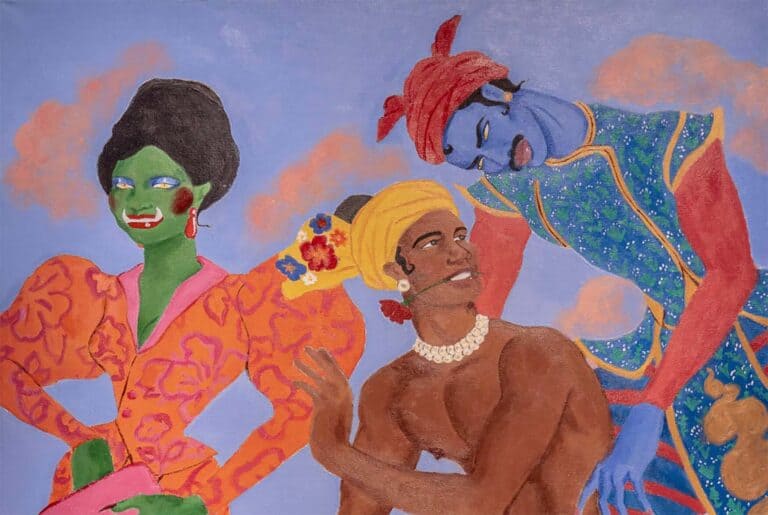Mamee Monster, Yan Yan, Coke. Rasam. Banana chips. Even the controversial Fair and Lovely. These are all items that you’ll find if you walk through the doors of The Substation SAD Bar at this moment. For one week only, Singaporean visual and performance artist Chand Chandramohan has transformed the atmospherically-lit basement space into An Actual Mama Shop. As its name suggests, visitors to this performance-installation can actually purchase common everyday provisions at very affordable prices.
From chilled Coke for 50 cents, to banana chips for 40 cents, Chand has judiciously kept prices low – because affordability, she feels, is a key characteristic of the quintessential mama shop. It’s a gesture that has attracted the attention of migrant workers who work in the vicinity, amongst whom word has spread that this is a place where one might obtain an inexpensive refreshment.
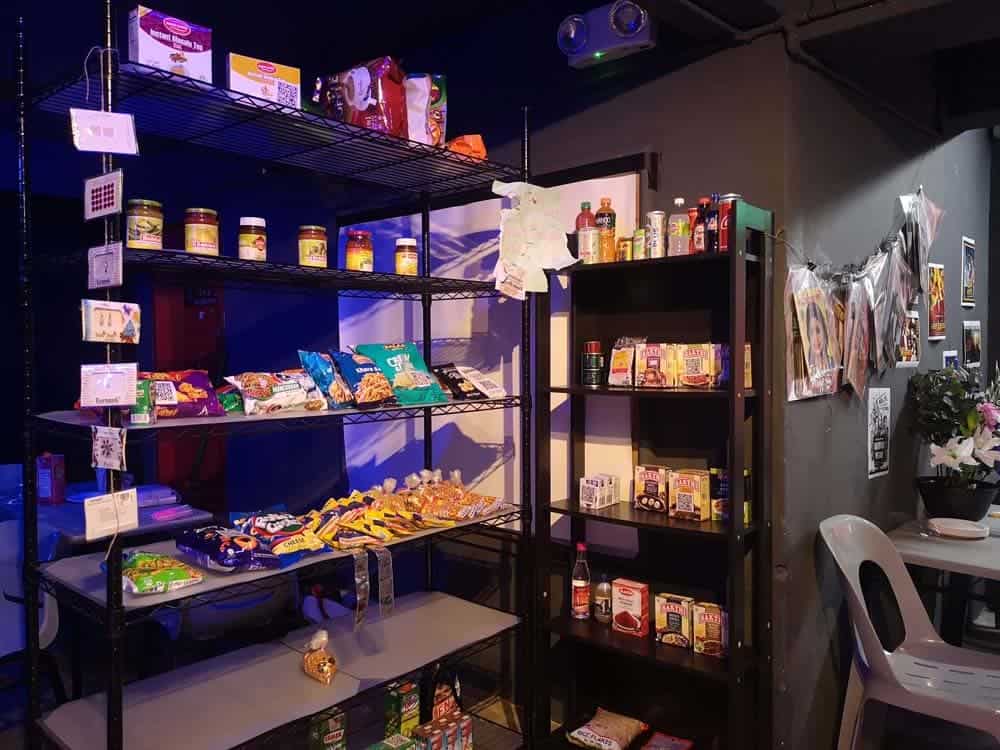
Once a common sight along HDB void decks, the mama shop is a provision shop that provides daily amenities to service the needs of its neighbourhood’s residents. It finds its name from the Tamil word ‘mama’, a term that means ‘uncle’ or ‘elder’, as it is usually migrant Indian men who run these stores.
The provisions in Chand’s mama shop are amassed from a variety of Indian-owned businesses, such as Mustafa and her own residential neighbourhood’s mama shop. She sees it as her way of supporting the Indian community, especially with the grant given by the Substation to create this work.
In this time of rising rentals and stiff competition from larger supermarket chains, the mama shop is fast becoming a rarity. In fact, without funding for this project, and an understanding landlord (i.e. The Substation), Chand believes that a humble mama shop such as hers would never be able to overcome the market forces that it needs to in order to exist in the Bras Basah and Civic District.
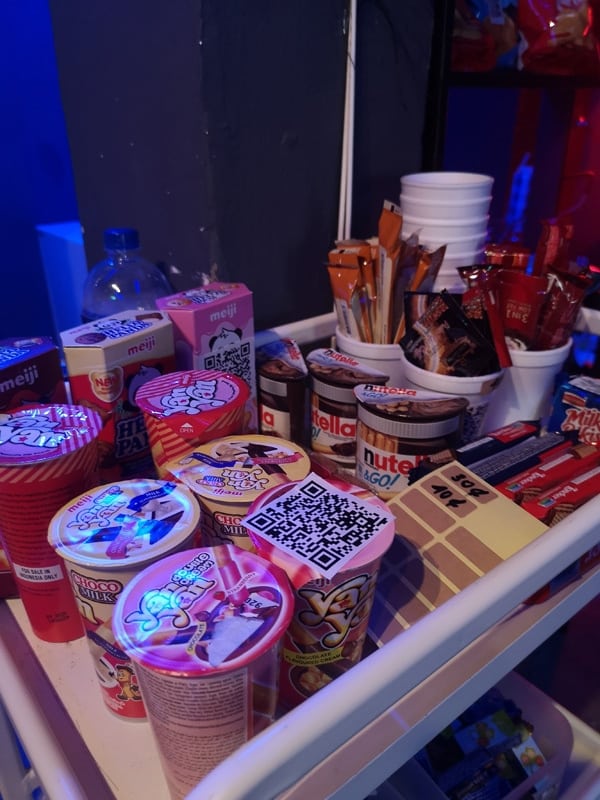
The gentrification of Singaporean neighbourhoods such as these is an issue that the artist hopes to raise awareness of. As such, you may find that some of her provisions carry a QR code that leads to a Google folder containing articles on the issue. (She’s also included recipes for traditional Indian food in this folder, in reference to how mama shops tend to stock key ingredients for Indian cooking. If you’re an avid cook – keep an eye out for an upcoming Plates article where we road test one of her recipes – and try it yourself!)
Chand laments the disappearance of the mama shop, because she strongly believes in its role as a site of community fostering. As I play shop assistant and pack chickpeas into bags for sale, she relates how the establishment of the mama shop in her own residential neighbourhood had been an integral first step to the growth of other businesses in a previously secluded void deck.
“For the longest time, there was no kindergarten, no coffee shop – even when businesses tried to start, they’d never make it past a few months. Units would constantly be empty.” It was only when the mama shop opened, she said, that foot traffic increased sufficiently for other business owners to consider setting up shop.
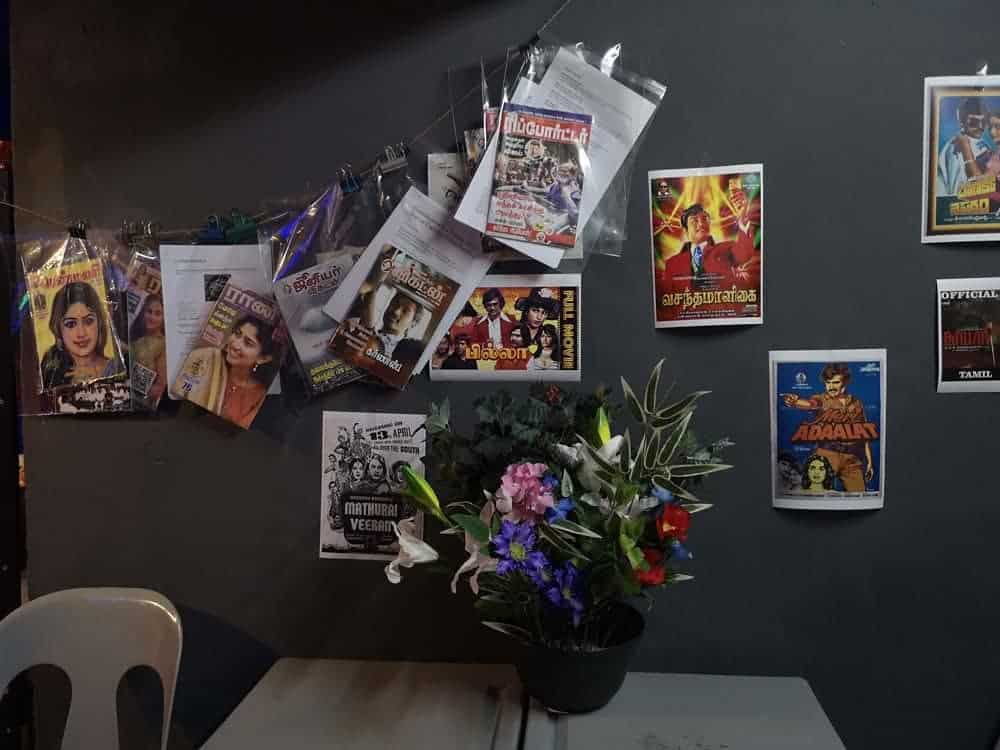
Our conversation takes a meandering path from her thoughts about the mama shop to the ongoing coronavirus situation, to food poisoning and crystals. Patrons come and go; some stay to chat whilst Chand busies herself with sewing a costume for an upcoming performance. As makeshift as this mama shop is, it manages to still perform its main functions well: feed its patrons and provide a convenient communal space where humans can connect with one another.
The interactions that take place in this performance-installation place it in clear company of relational art by other regional artists, such as Amanda Heng’s Let’s Chat and Rirkrit Tiravanija’s (who’s afraid of red, yellow, and green). But knowing Chand’s frustrations about the art world’s inherent inaccessibility to the marginalised demographics, I’m guessing that she would rather talk about more pragmatic things than some highfalutin concept by a French art critic.
As she puts it, “My stance this year has been that art is useless. It will not solve anything – we can talk about it all we want, but in the end it’s very classist, very privileged, and only a few people get access to it. So when I got the funding – $1500 – I thought about how I could objectively make things better, even if it’s just temporarily. And I thought about how I could just buy things from mama shops, which helps their business, and sell it at an affordable price to those who need it – that’s it.”
________________________________________________________________
An Actual Mama Shop is ongoing at The Substation SAD Bar from now until 18 March 2020, and is open from 12pm to 8pm.

